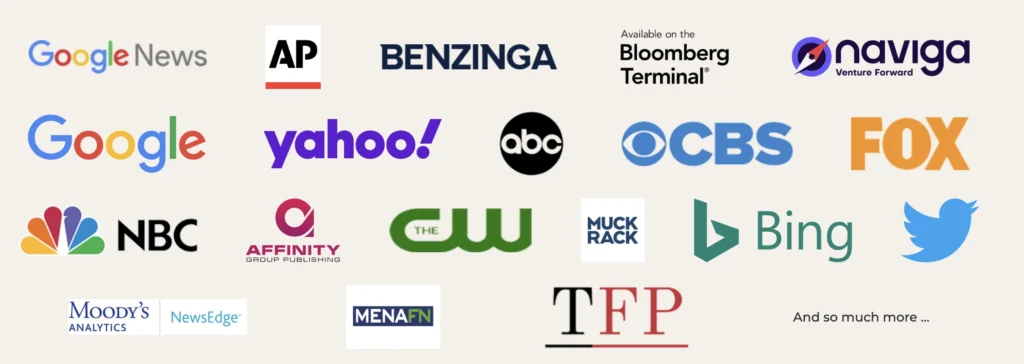Transforming Last-Mile Delivery Through Technology And Strategic Leadership
Andrew Leone and Ryan Hanson discuss the founding of Dispatch, its unique market position, and their vision for future growth and innovation.
Andrew Leone and Ryan Hanson, the visionary co-founders of Dispatch, have redefined the logistics landscape with their innovative approach to last-mile delivery. With a wealth of experience spanning various industries, both leaders have demonstrated an unwavering commitment to excellence and a keen understanding of market needs. Andrew, as the Chief Executive Officer, has a remarkable track record of driving growth and profitability in multiple sectors, while Ryan, serving as President, has honed his expertise in sales and strategic partnerships, propelling Dispatch to new heights. Their combined leadership not only reflects their entrepreneurial spirit but also their dedication to creating solutions that enhance operational efficiency for businesses of all sizes. Their recognition as finalists in prestigious awards underscores their impact and the transformative nature of their work.
The journey of Dispatch is a testament to the power of innovation in addressing real-world challenges. As we delve into the insights shared by Andrew and Ryan, we uncover the motivations behind their groundbreaking venture, the unique strategies that set Dispatch apart in a competitive market, and their vision for the future of logistics. Their story is one of resilience, adaptability, and a relentless pursuit of excellence, making it a compelling narrative for entrepreneurs and industry leaders alike.
What inspired the founding of Dispatch, and how has the company’s mission evolved since its inception?
Dispatch was born out of a gap in the distribution chain, specifically to solve a critical inefficiency in the service industry. The problem was skilled technicians were losing valuable work time by having to leave job sites to pick up parts or tools. This delay not only slowed down projects but also impacted overall revenue. We considered traditional courier services as a potential solution, but they lacked the technology and flexibility needed for efficient, on-demand deliveries. That’s when we started to envision a better alternative and by leveraging technology to streamline this process, we founded Dispatch. It has since evolved from a marketplace business to an entire last-mile delivery platform — a suite of solutions designed for businesses of all sizes to optimize their delivery operations and logistics.
How does Dispatch differentiate itself from other logistics and delivery service providers in the market?
How we differentiate ourselves from other logistics and delivery service providers is with our suite of solutions. With our intelligence engine, we’re able to control how parcels are routed in real time. By doing that, we’re able to provide consistent quality across all markets. We provide a consistent billing structure and optimize routes down to the individual shipment, driving efficiency. We’re also transparent about our delivery results, as we provide delivery performance details to all customers. The feedback we get over and over again is that users love the quality of the service.
What key factors do you believe have contributed to Dispatch’s success in the competitive logistics industry, and how do you plan to sustain this momentum?
There are three key factors that drive our success. One key factor is our healthy independent contractor driver network. We do our best to take care of our drivers, listen to their feedback, and improve their experience. Second, we have top-level talent. We have a group of people at Dispatch who really respect one another and care about what we’re building. Third, we’re a core values-driven organization, so pairing our people with a values-driven approach sustains our growth momentum.
How has your leadership style evolved since founding Dispatch, and what lessons have you learned that have been most impactful in guiding the company?
Knowing when to leverage the team for scale and knowing when to dig in and get your hands dirty. The organization can’t level up unless we are, so we’ve continually prioritized having trusted mentor networks. More recently, we’ve been focused on leveling up the talent across the company. You could be a great leader, but if you don’t have best-in-class talent, you’re not going to multiply those lessons. Conversely, you can go get great talent, but if you don’t have the right level of leadership, you’re not going to get the maximum return out of people. The key is to bring in great people and give them the infrastructure, the tools, and the guidance to be successful and get out of their way.
Can you share some of the biggest challenges Dispatch has faced in scaling its operations, and how the company overcame them?
One of the biggest challenges we faced was outgrowing our team’s capacity as the business scaled. In traditional businesses, there’s more time for gradual, organic growth, allowing leaders to coach and develop their teams for the next level. However, in a high-growth environment like ours, we didn’t have that luxury. As a result, gaps emerged where the business grew faster than the talent could keep up. It’s not necessarily about letting people go but about filling those gaps and restructuring the organization to prepare for the next wave of growth. Managing people is always the most challenging aspect—rebuilding accountability and restructuring the team is crucial, and our operating framework has been essential in navigating this.
What role does technology play in Dispatch’s strategy, and how do you see it shaping the future of the company?
Technology is everything. We’re at a pivotal point in which the world is becoming autonomous, and artificial intelligence is going to play a key role. For last-mile delivery, the ability to synthesize data and create actionable tasks out of that data in real time is huge for what we do. Then you pair that with automation and you have a fully automated, optimized last-mile system. How we look at strategy is we can take all the things our customers are doing and help them do it better. Our job is to radically focus on the user, curate the technology that’s available, and choose what’s most beneficial to the user to help them achieve their business goals.
EDITOR’S HIGHLIGHTS
Empowering Businesses Globally
“Being featured in Entrepreneur Prime means gaining visibility not just in print edition, but across the entire media spectrum in the US, UK, Europe and beyond”

EDITOR’S HIGHLIGHTS
The Power of Media for Entrepreneurs and Businesses
Building Success Through Visibility
Media is a powerful tool to build relationships, boost visibility, influence decisions, and create lasting impressions for success and growth.































